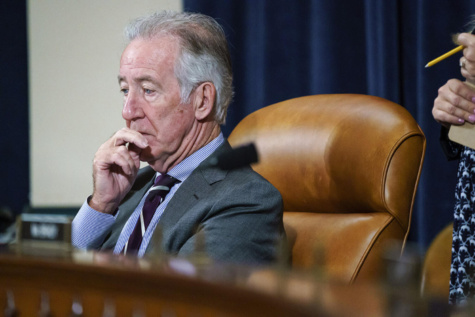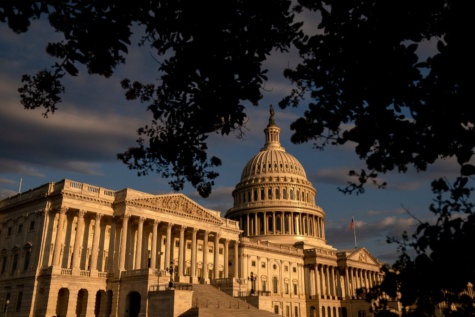
Brookelynn Hodgin | Writer
September 17, 2021
On Monday, Senior House Democrat Richard Neal proposed a bill that would increase tax revenue by $2.9 trillion, with the intention of impacting wealthy Americans and large corporations that influence the market. Although the purpose of the bill is essentially to “tax the rich,” it has raised eyebrows among both Democrats and Republicans alike, as the proposal plans would leave many of the “uber-rich” out of the equation.
The proposal included a 39.6% income tax rate for Americans earning $450,000 and for unmarried individuals earning $400,000 in taxable annual income. Additionally, a 3% surtax, or additional tax, is added for those earning over $5 million a year. Under Trump, the income tax for wealthier individuals was only 37%. As promised, Biden and Senior Democrats are trying to make those who have the ability pay more taxes pay more taxes.
However, under this plan, those who have the greatest ability to pay taxes won’t even fall under the category to take on that tax increase.
In 2020, the Amazon salary of Jeff Bezos — who currently has a net worth of $200.9 billion — was a meager $81,840 compared to the $1.6 million he earned in other forms of compensation (Salary.com). Another incredibly wealthy individual, Elon Musk, earned an annual salary of only $23,760 from Tesla (Salary.com), yet his net worth remains a staggering $191.1 billion. This allows both of them, as well as others, to pay their taxes entirely unscathed by the new increase. Instead, it will target high-middle to upper class individuals and households that, while have the means necessary to pay more taxes, are not the intended targets of the proposal.
“I think a greater tax rate wouldn’t do much, because what we have right now is mismanaged funds in the government,” senior Anthony Vigil said. “Once we have cleaner paper trails [on government spending], then I think it would be beneficial to raise taxes on the rich, but also taxing their assets.”
As for successful businesses, the corporate tax rate would increase about 5%, from 21% to 26.5%. Businesses earning between $400,000 to $5 million in yearly revenue would not see a tax increase. The bill would apply to companies that find themselves above that income threshold, and small businesses that fall below $400,000 would actually be cut down to an 18% corporate tax rate.

While the corporate tax proponent of the proposal would greatly benefit small businesses — something America needs following the shutdowns of the COVID-19 pandemic — and increase the tax revenue from companies that are well off, it also creates another disparity for corporations that take loopholes through the system to avoid taxes.
Corporations such as Microsoft have moved their assets or bank accounts to foreign countries, like Puerto Rico, in order to avoid U.S. corporate tax (Propublica). The IRS has tried to bunker down on Big Tech following suit, but many large companies are able to get out of their corporate taxes and increase their revenue, while many American-based businesses, big and small, are unable to cut corners and instead must pay their taxes.
The federal government, which has been giving corporations and the American elite a break for far too long, is finally being called out by House and Senate members who are upset that the proposal didn’t include a wealth tax. Granted, the United States has never implemented a wealth tax, which poses a challenge. Certainly the question of its constitutionality would be a pressing topic in Congress, but one goal remains for both American parties: tax the rich.
Taxing rich corporations and individuals in America takes a burden off of lower class and low-middle class Americans that are riddled with taxes upon taxes. It is incredibly unpatriotic, as a dismissal of civil responsibility, to try and sneak around the taxation system, especially when many billionaires possess a liberal voice and speak out about change and equality. Moreover, the irony of the fact is that many of these elites have companies with missions to assist those in need and “make the world a better place,” despite their own immoral actions in order to pocket more money.
“I believe in the idea of people in a society having a moral and ethical responsibility to maintain the quality of lives in communities,” senior Bethany Padilla said. “When people cannot afford to pay rent and employers don’t pay livable wages, a simple action to balance out this class injustice would be taxing the businesses more.”
Democrats in the House are naive if they think that implementing this income and corporation tax increase is going to hold certain companies and individuals accountable. Congress needs to create laws and pass bills that will ensure that the disgustingly wealthy Americans pay their stay and practice what they preach.

Leave a Reply